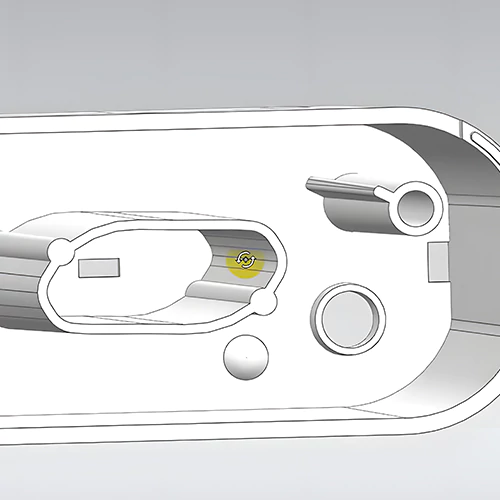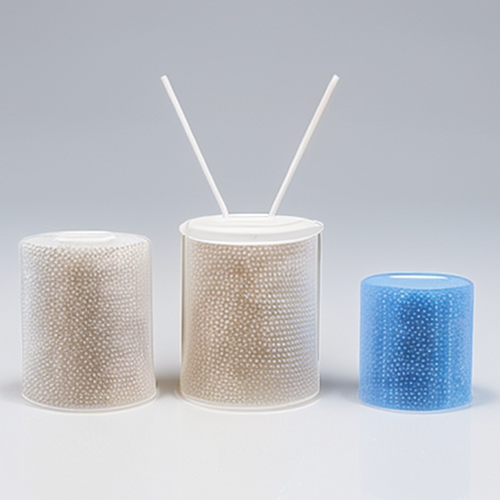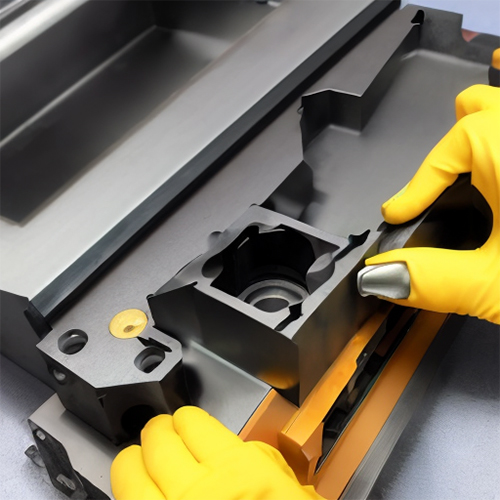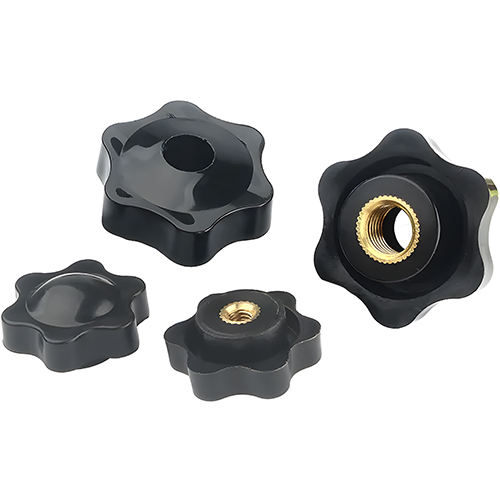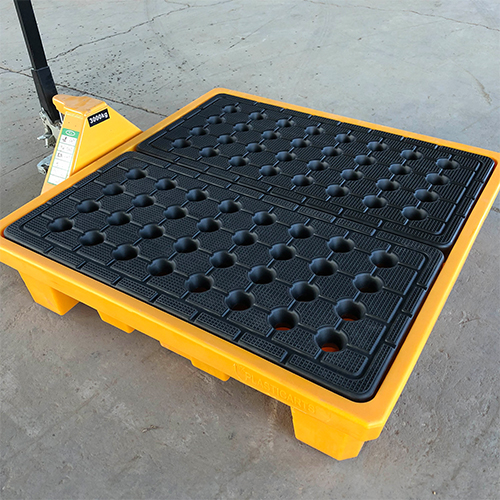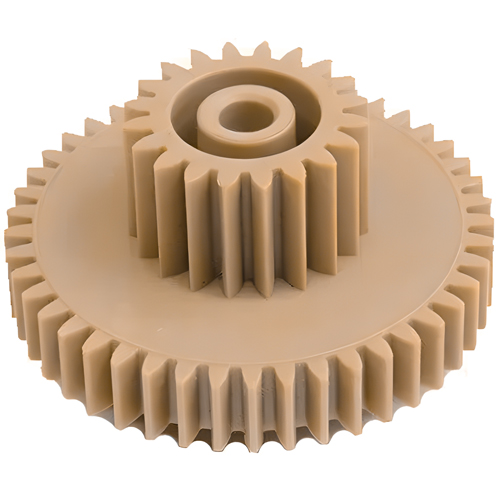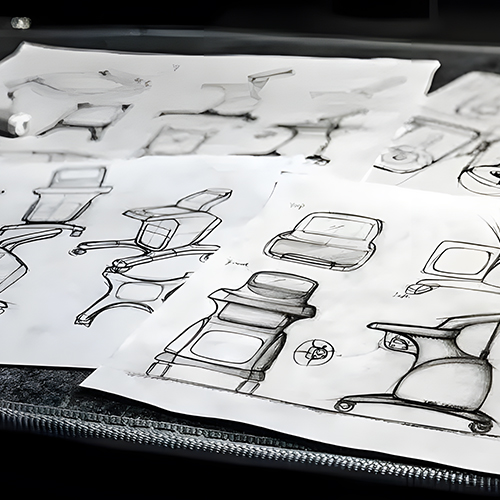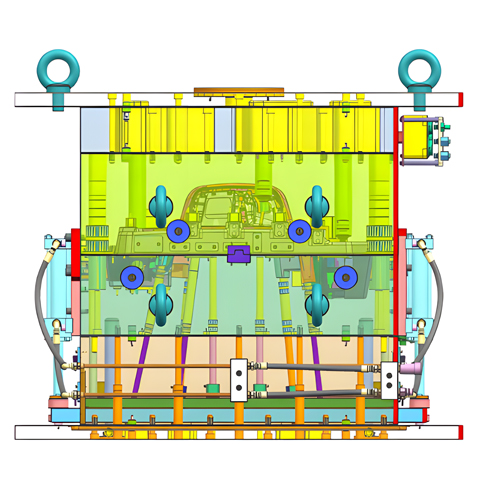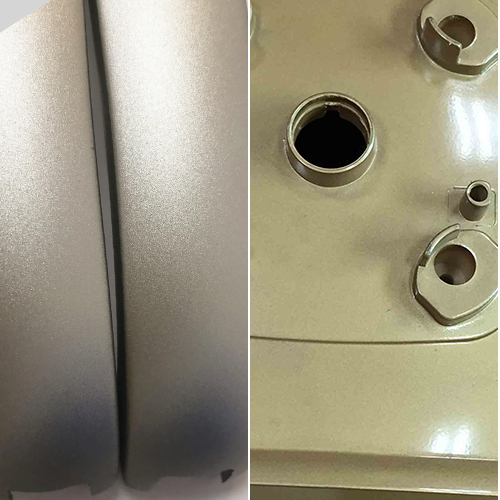Overmolding, a technique familiar to experienced designers, presents unique challenges in its application, particularly in modern mold design. Today we will analyze a case of cup overmold to showcase a practical approach to this advanced manufacturing process. We will explore how UG/NX software can be leveraged to create precise and efficient overmolding designs for cups, a common yet complex product in the plastic manufacturing industry.
The First Stage of Cup Overmolding
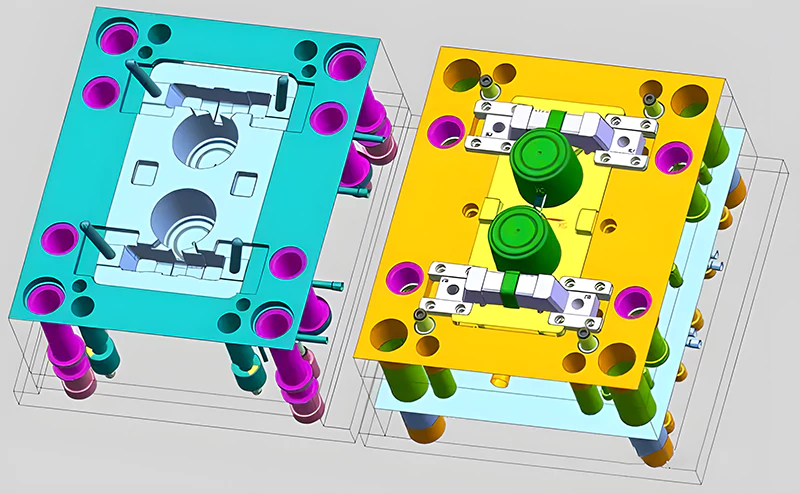
Achieving perfection in overmolding requires more than basic mold design knowledge. It involves understanding the nuances of subsequent processes to ensure flawless results for the client. The first stage of cup overmolding is critical as it sets the foundation for the final product. It involves creating the inner structure of the cup, which must be designed to support the outer layer added in the second stage. This stage requires meticulous planning to ensure that the inner layer has the right thickness, material consistency, and is free of defects.
The Second Stage of Overmolding
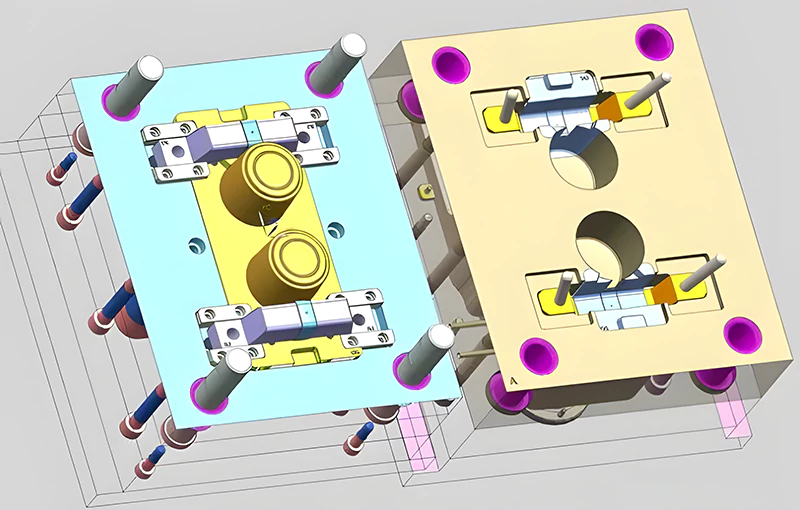
The second stage of overmolding is where the outer layer of the cup is added. This stage demands precision in aligning the two parts of the mold and ensuring that the second material bonds correctly with the first. The challenges here include avoiding shrinkage, preventing flash (excess material), and maintaining the overall aesthetic quality of the cup. This stage is where the designer’s expertise in material properties and mold design truly shines, as they must anticipate and counteract any potential issues that could arise from the overmolding process.
Preserving Aesthetics with Pin-Point Gate Injection
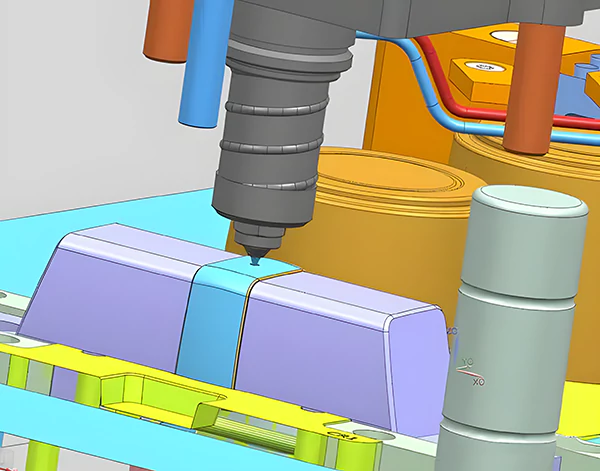
In cup overmolding, aesthetics are as important as functionality. The pin-point gate injection method is a sophisticated technique used to enhance the appearance of the final product. This method allows for precise control over where the material enters the mold, reducing the visibility of the injection points and ensuring a smooth, clean finish on the cup’s surface.
3D Model of a Plastic Cup
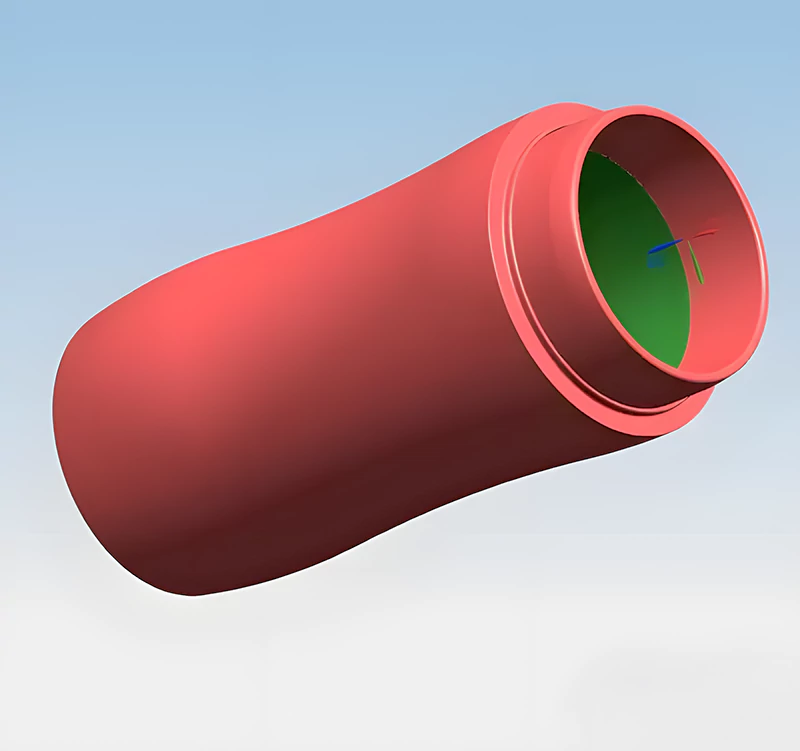
The 3D modeling of a cup in UG/NX software is a crucial step in visualizing and planning the overmolding process. The software allows designers to simulate different materials and molding stages, ensuring that the final product meets the required specifications. For a cup made of PC material with a thickness of 17MM, 3D modeling helps in identifying potential issues like shrinkage and bubble formation during the injection molding process.
Details Of Cup Overmold Design
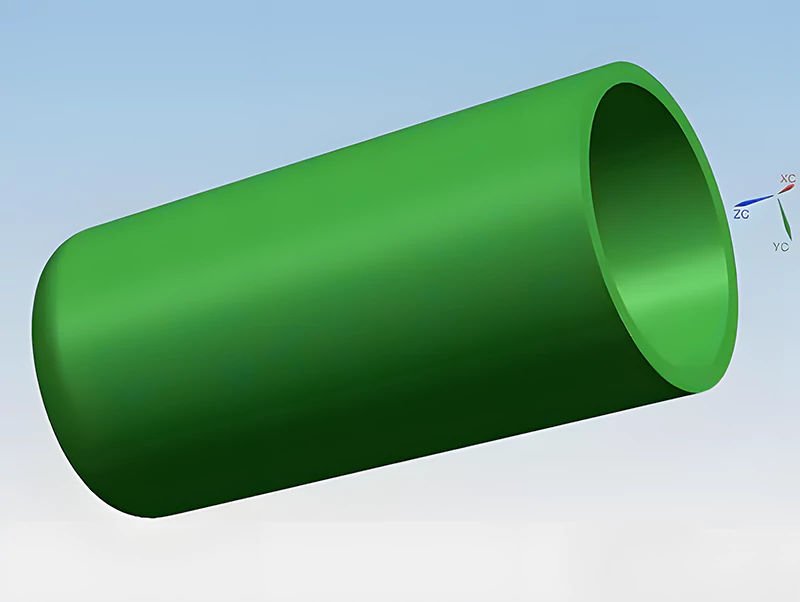
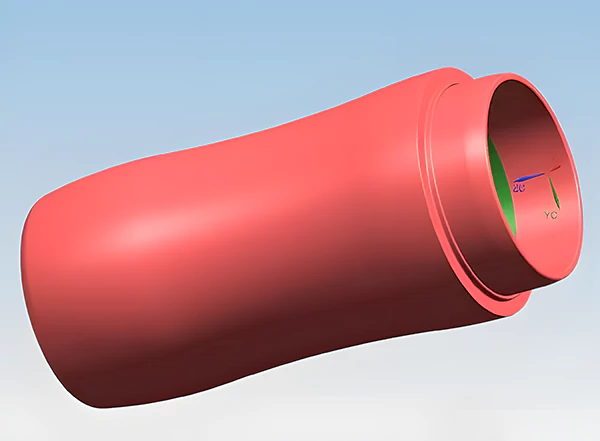
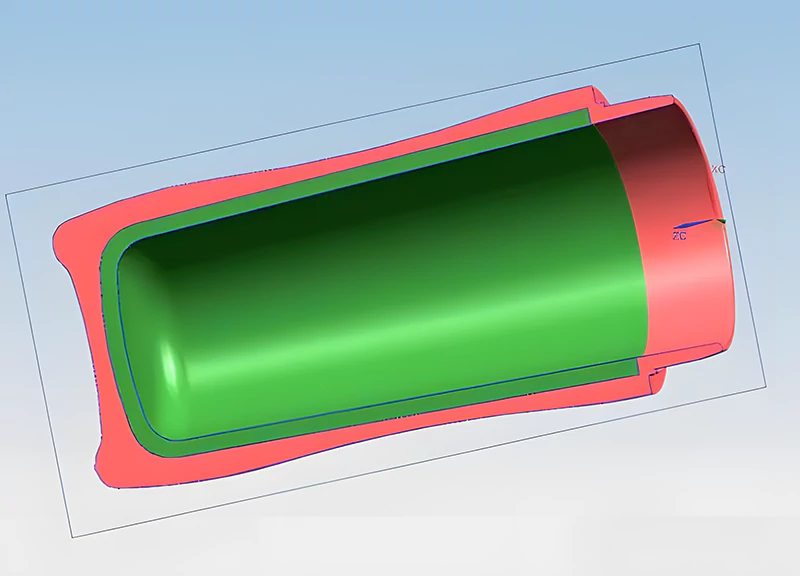
The detailed 3D models of both the first and second molding stages provide a clear view of the internal and external structures of the cup. This visualization is crucial for understanding how the two components will interact and bond during the overmolding process. The cross-section view offers insights into the thickness distribution and potential stress points, which are vital for ensuring the durability and quality of the cup.
Large Sprue Injection in the First Stage
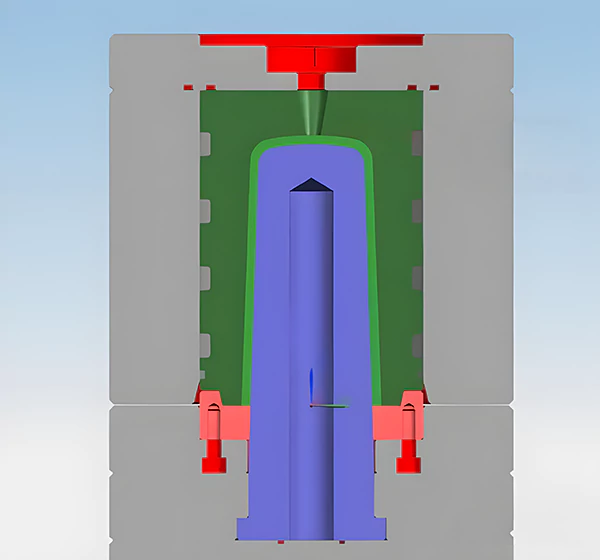
The choice of sprue size and placement in the first stage of overmolding can significantly impact the final product’s appearance, especially for transparent materials. Large sprue injections, while easier to manage, can leave visible marks that detract from the cup’s aesthetic appeal. This section highlights the importance of balancing ease of manufacturing with the final product’s visual requirements.
Final Overmolding Effect
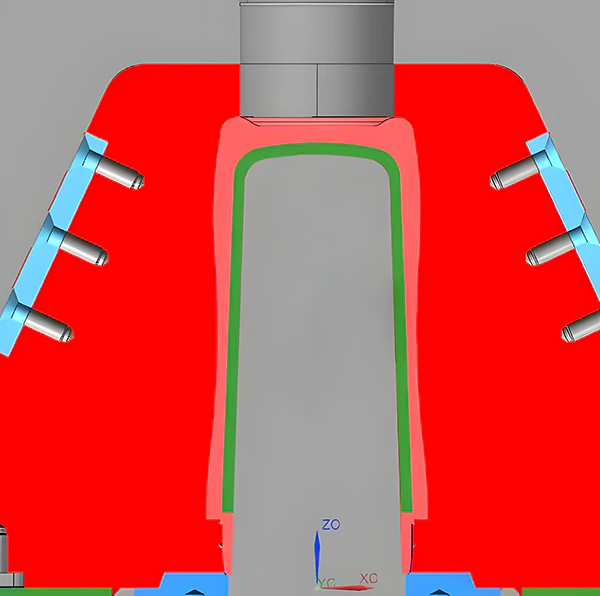
The final overmolding effect is a testament to the precision and skill involved in the entire process. By using a pin-valve hot runner system in the second stage, any imperfections from the first stage, such as sprue marks, are effectively eliminated. This results in a cup that not only meets functional requirements but also possesses a high-quality finish that appeals to consumers.
Conclusion
Cup overmolding in UG/NX software demands a blend of technical expertise and practical experience. By understanding the complexities of each stage and employing advanced techniques, designers can achieve superior quality in their overmolded products. This process exemplifies the intricate balance between aesthetic appeal and functional integrity in product design.

